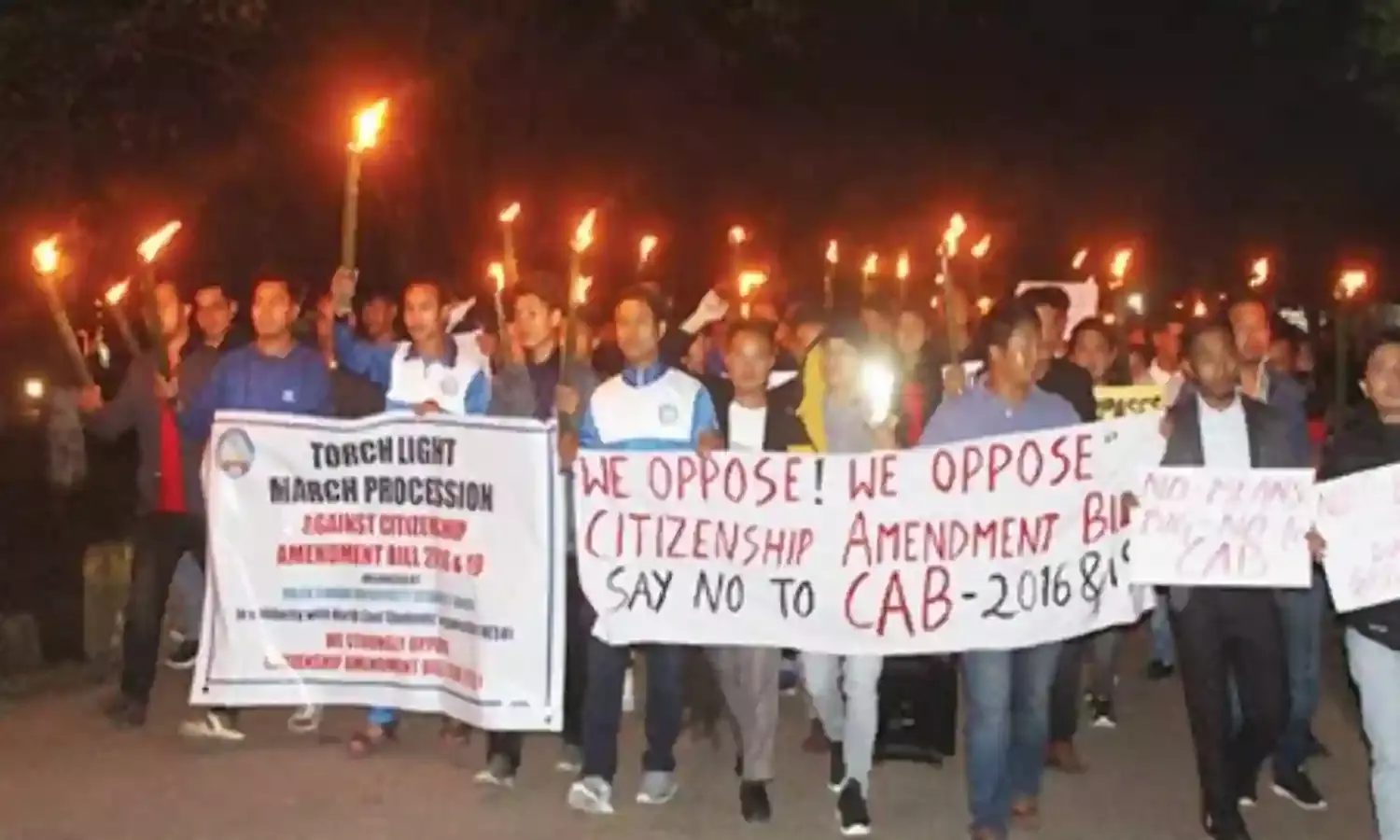Student Protests In India's Blindspot: Northeast Continues to Oppose CAA
Protests grip the Northeast;

RONO HILLS: It’s was a little after five in the evening when - in the lawn adjacent to the ‘Wall of Heroes’ at the Rajiv Gandhi University (RGU) near Arunachal Pradesh’s capital Itanagar - student, Misso Nobin, began a sit-in protest against the Citizenship Amendment Act (CAA) on Sunday.
By Monday morning, he had been joined by a few more protesters, including those who were not from the University.
Their demand: revoke the CAA.
Along with Delhi, UP, and Bengal, protests have gripped the life of citizens across almost all eight states of the Northeast.
To crackdown, state governments in Assam, Meghalaya, and Tripura shut down internet services. While internet services have been restored in Meghalaya and Tripura, several parts of Assam continues to be under data lock down.
State-wide protests took place in several parts of Assam, including Guwahati, as part of the three-day ‘Satyagraha’ that began on Monday.
Reports said that police in Guwahati had taken the All Assam Students’ Union chief advisor Samujjal Bhattacharya and general secretary Lurinjyoti Gogoi into custody along with more than a hundred protesters.
Apart from the December 10 region-wide bandh, protests in Arunachal Pradesh have been more mellow.
It was the students of the Rajiv Gandhi University and the Students Union of NERIST (SUN) who hit the streets, walking over 30 km to reach Raj Bhavan to voice their opposition against the Act -- which many in the region feel makes the numerically smaller indigenous even more vulnerable to cultural erosion and demographic changes.
At the forefront again, are the students of RGU.
Misso Nobin, an MA first semester student studying sociology, decided that the long walk to Raj Bhavan wasn’t enough, especially when it came to grabbing the attention of news channels operating from ‘the mainland’.
“I feel like we are being completely ignored by news channels outside,” Nobin said at the end of the day’s sit-in protest.
Nobin is an RGU student twice-over, having already completed his masters degree in physics from the same university a few years earlier.
He says he’s an extrovert and that studying the sciences leaves one introverted. “Also, I quite liked the subject,” he said.
He and others who joined him in his protest are determined to keep the protests non-violent and peaceful. Even in the face of one particularly loud student who, in the evening, called for “thod-phod” to make sure the government listens to their demands. It’s a call to arms that immediately draws derision from almost everyone in that crowd of about 20 people.
One of those who joined the protest today, Agnes Linko, harks back to the February protests against the possible issuing of permanent residence certificates to a number of communities in the state; these were were marked with violence and led to three deaths at the hands of paramilitary personnel.
“People damaged public property, business were destroyed. Who suffered?” she asks. Amidst calls for making sure the protests remain free from violence, the students make a few demands.
The first of which is the repeal of the Act. And apart from the existing Bengal Eastern Frontier Regulation that prohibits non-indigenous people, including Indian citizens from other states, from buying and owning immovable land, the students are also pressing for Arunachal Pradesh to be brought under the ambit of the Constitution’s Article 371(A).
The Article, under whose provisions Nagaland is under, states that Nagas of Nagaland are protected in respect to religious or social practices of the Nagas, customary law and procedure, and administration of civil and criminal justice involving decisions according to Naga customary law.
Most importantly, perhaps, the Article states that: “ownership and transfer of land and its resources, shall apply to the State of Nagaland unless the Legislative Assembly of Nagaland by a resolution so decides.”
This has been a long-pending demand from those who have been seeking better protective measures for indigenous communities.
Many feel that bringing the state under the ambit of the Article will act as a safeguard against external cultural impositions.
While the sit-in protest ended at 5 PM, to be resumed the next day at 10 AM, Nobin has more immediate pressing matters to attend to. The University is currently conducting its semester examinations and Nobin has papers to appear in the next two days.
“If I revise for tomorrow’s paper I should be fine,” he says, adding that it’s the research methodology paper on Wednesday that has him worried.

